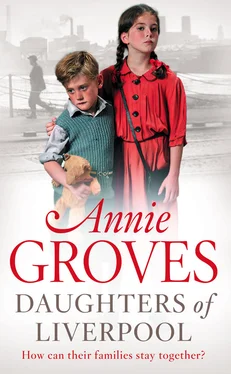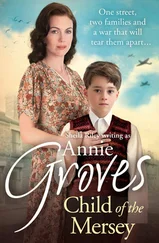On the top floor of their parents’ three-storey house in their shared attic bedroom, the twins regularly practised all the new dance steps they had seen in films, or begged their school friend, whose sister was a dance teacher, to show them, adapting them to a private shared routine they could dance in time to the new songs coming out of America, ready for the breaks they just knew they were going to get. Somehow or other …
Walking home past one of the most famous of Liverpool’s theatres, the Royal Court was part of their secret plan. A plan that involved them being seen and offered the opportunity to audition for a show, in which they would so impress the right people that they would be whisked off to Broadway to become overnight stars.
The train had slowed down preparatory to pulling into Liverpool’s Lime Street Station. Katie Needham wriggled a little apprehensively to the end of her seat. It had been a long stop-and-start journey from London to Liverpool, and the train was full with a mix of young men in uniform and other non-services travellers like herself. Naturally, the precautions necessitated by being at war meant that there were no lights on inside the train to illuminate the December late afternoon gloom, but Katie was too nervous to want to read, even if there had been enough light to enable her to do so.
She smoothed the fabric of her navy-blue skirt, glad of the warmth of the cherry-red jumper she was wearing. She had taken off her navy-blue woollen coat along with her matching wool beret, and her cherry-red hand-knitted scarf and gloves, a present from an elderly neighbour, when she had got onto the train, folding up her coat and her scarf and rolling her beret and her gloves to stow them carefully in the pocket of her coat before putting them on the luggage rack above her head along with her small case.
‘Soon be there.’ The pleasant woman in her thirties, who had chatted to her during the journey, informing her that she was travelling to Liverpool to see her husband, who was on leave from the navy, gave her a brief smile but Katie guessed that her travelling companion’s thoughts would be on her husband and the happy reunion that lay head. No one asked too many questions or gave away much information in these security-conscious times, and Katie had been relieved when the navy wife had accepted her own vague but proud statement that she was going to Liverpool to do ‘war work’.
Now, though, Katie’s thoughts were more apprehensive than happy. Had she done the right thing? As the train rattled over the points and into the station, Katie admitted that she didn’t know whether to feel pleased with herself or downright scared. She knew what her parents would want her to feel, she acknowledged, as, along with the other occupants of the compartment, she stood up and started to put on her outdoor clothes. The looseness of the wedding ring on the finger of the woman seated next to her reaffirmed the effects of the anxiety and hardship the whole country was experiencing, with 1941 only just around the corner and no end to the war yet in sight.
The train jolted to a halt with a hiss of steam and a squeal of brakes, causing everyone to reach for something to hold to steady themselves. Katie and the navy wife exchanged final smiles and then went about the business of straightening hats and wrapping on scarves.
Katie’s parents had made it plain enough to her that they were far from pleased about her decision to leave home to go to do war work in Liverpool when, according to them, they needed her at home to help them.
To keep the peace between them more like, Katie thought ruefully.
It wasn’t that Katie didn’t love her parents –she did – but she didn’t have any illusions about them. When her best friend at school had said enviously that she wished that her mother had been an actress and her father a famous band leader, Katie had had a hard time not telling her how much she wished that her parents were more like her friend’s: that her mother wore a pinafore and worried about mealtimes and muddy kitchen floors, and that her father went off to work in the morning and then came home at five o’clock.
Where other parents seemed to manage to have calm ordered lives, her parents seemed to prefer chaos and quarrels.
Her father was fiercely jealous and had insisted on her mother giving up the stage when they had married, whilst she in turn vented her frustration on him with outbursts of temper during which crockery was thrown and threats to leave were made. As a young child Katie had been dreadfully afraid that during one of their quarrels both her parents would leave and that she would be forgotten and left behind.
As she followed the other passengers out onto the platform Katie wrinkled her nose against the smell of smoke and cold air.
The station was very busy. Every platform seemed either to have a crowd of people standing on it waiting for a train to pull into it, or passengers crowding onto it from a train that had just pulled in.
As Katie joined the queue for the ticket barrier, she was glad of the warmth of her winter coat. All around her she could hear people speaking with an unfamiliar accent, so very different from the cockney she was more used to. She had been told that Liverpudlians were friendly and welcoming. She hoped that that was true.
She was so afraid of having made the wrong decision and having to admit that to her parents. She loved them dearly but their quarrels had coloured Katie’s childhood and as she grew older they had obliged her to take on the role of peacemaker, both parents appealing to her to support their points of view. Katie felt as sorry for her glamorous excitable mother, denied a proper outlet for her theatrical talents, as she did for her poor father, who was so afraid of losing her. If the relationship between her parents was what happened when a person fell in love, then Katie had decided falling in love was definitely not for her. She wanted no truck with it and even less with passionately jealous men.
They had been shocked when she had told them what she had done.
‘You’re going to Liverpool to read letters?’ had been her father’s disbelieving comment, followed by his signature crashing of his hands down onto the keys of the ancient upright piano that took up far too much room in their small rented London house. Her father always used the piano to express his feelings. ‘But I need you here.’
He had been dressed to go out to ‘work’ when she had told them, wearing his immaculate band leader’s white tie and tails, his hair slicked back with brilliantine.
Now Katie smiled as she handed over her ticket, and was relieved to receive a warm smile back from the burly uniformed ticket collector.
In looks Katie took more after her mother than her father, having her mother’s dainty build and expressive heart-shaped face with high cheekbones and a softly shaped mouth. Her colouring, though, was her father’s. She had his hazel eyes and the same dark gold hair that turned lighter in the summer sun.
She had been working as her father’s unpaid ‘assistant’ ever since she had left school, organising his diary, attending rehearsals with him, making notes for him from the comments he made about various members of the two different bands he worked with, some of whom were foreign and inclined to break out into their own language in moments of stress, so that as well as her knowledge of modern music Katie also had a smattering of Italian, Polish and French.
There was nothing about the history of modern dance and song music that Katie didn’t know, from every word of every popular song for the last decade or so, to the name of every composer of those songs, and the names of every member of the country’s most popular dance bands.
Sadly, though, whilst her father and her mother could both sing with perfect pitch, Katie, whilst loving music every bit as passionately as they, had a voice that was completely musically flat, a voice incapable of being raised in song; a voice that had caused both her parents, but especially her father, to demand that it was never ever heard attempting to sing a single note because of the pain it would cause him.
Читать дальше












